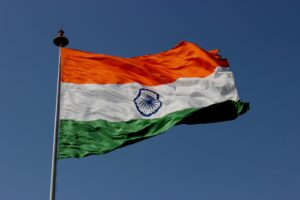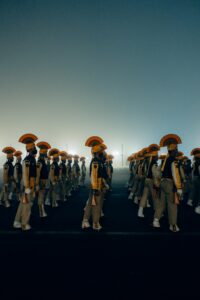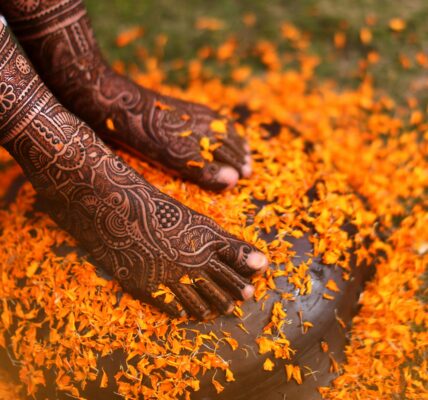Republic Day is a significant national holiday celebrated in many countries around the world to commemorate the day on which they became republics. Although the specific date and historical context vary from country to country, Republic Day generally symbolizes the establishment of a government elected by the people and for the people. In this blog, we will explore the importance of Republic Day, its historical background, and the ways in which it is celebrated.
Historical Significance
Republic Day marks a pivotal moment in a nation’s history, signifying the transition from a monarchy, colonial rule, or some other form of government to a republic. This change often represents a significant step towards democracy and self-governance. For example:
- In India, Republic Day is celebrated on January 26th to commemorate the date in 1950 when the Constitution of India came into effect, replacing the Government of India Act (1935) as the governing document of India.
- In Italy, Republic Day is celebrated on June 2nd, in remembrance of the 1946 referendum when Italians voted to abolish the monarchy and establish a republic.
Celebrations and Traditions
Republic Day celebrations often include a mix of pomp, military parades, and cultural events, reflecting the pride and unity of the nation. These events not only honor the historical significance of the day but also showcase the country’s cultural and military heritage.
For instance, India’s Republic Day celebrations are famous for the grand parade in New Delhi, which includes a display of India’s defense capability, cultural and social heritage, and also various tableaux from different states depicting their culture and traditions.
Educational and Reflective Aspect
Republic Day is also an opportunity for educational and reflective activities. Schools and public institutions often organize events and discussions about the country’s history, constitution, and the responsibilities of being a citizen of a republic. These activities encourage people, especially the younger generation, to understand and appreciate their nation’s journey towards becoming a republic.
Unity in Diversity
In countries with diverse cultures and traditions, Republic Day is a powerful reminder of unity in diversity. The celebrations often highlight the different cultures, languages, and religions of the nation, promoting a sense of national unity and pride.
Conclusion
Republic Day is more than just a national holiday; it is a celebration of democracy, freedom, and the enduring spirit of a nation. It’s a day to remember the sacrifices made by the forefathers, to rejoice in the present freedoms, and to renew commitment towards the nation’s future. As citizens, it’s a day to reflect on our role in continuing the legacy of the republic and uphold the values enshrined in our constitution.
Whether you are attending a parade, watching the celebrations on television, or participating in community events, Republic Day is a time to celebrate the spirit of togetherness, progress, and the enduring values of democracy and freedom.

History of India’s republic day:
The history of India’s Republic Day is both rich and significant, marking the country’s transition from a British colony to a sovereign republic. This day is celebrated every year on January 26th and has deep historical roots and cultural importance.
Historical Background
- End of British Rule: India gained independence from British rule on August 15, 1947. However, the country did not yet have a permanent constitution; instead, its laws were based on the modified colonial Government of India Act 1935.
- Drafting the Constitution: After independence, a drafting committee was appointed to write India’s new Constitution. Dr. B.R. Ambedkar headed this committee. The task was monumental, involving extensive research and consideration of the diverse needs of the Indian population.
- Adoption of the Constitution: The Indian Constitution was adopted on November 26, 1949, by the Constituent Assembly. However, it came into effect on January 26, 1950. This date was chosen deliberately to mark the Purna Swaraj (Complete Independence) Day, which was observed on January 26, 1930, as a declaration of independence from British rule.
Significance of January 26
The date, January 26th, was specifically chosen for the enactment of the Constitution to honor the declaration of Purna Swaraj. This was the first time when the Indian National Congress declared complete independence from British rule in 1930, a significant step in the Indian independence movement.
Features of the Constitution
The Constitution of India laid down the framework for a sovereign, socialist, secular, and democratic republic. It established the structure, procedures, powers, and duties of the government and outlined the fundamental rights and duties of citizens.
Celebrations
Republic Day is celebrated with great enthusiasm across India. The main event is the Republic Day Parade in New Delhi, which showcases India’s defense capability, cultural and social heritage. The parade includes:
- Military Parade: A display of India’s military strength, including marches by armed forces personnel, tanks, and other military equipment.
- Cultural Tableaux: Floats from different states and Union territories, depicting their culture and traditions.
- President’s Address: The President of India, who is the Commander-in-Chief of the Indian Armed Forces, hoists the national flag followed by the national anthem and a 21-gun salute.
- Awards and Honors: Bravery awards like the Ashok Chakra and children’s bravery awards are also part of the event.
- Beating Retreat: The celebrations officially conclude on January 29th with the Beating Retreat ceremony, which includes performances by the bands of the Indian Army, Navy, and Air Force.

Conclusion
India’s Republic Day is not just a celebration of its constitution and independence but also a day to remember the struggle for freedom and the sacrifices made by countless individuals. It’s a day that reinforces the values of democracy, freedom, and the rule of law in the world’s largest democracy. The Republic Day celebrations are a vibrant display of India’s cultural diversity and military strength, uniting the country in a spirit of patriotism and pride.https://dailyaware.com/wp-admin/post.php?post=311&action=edit
https://en.wikipedia.org/wiki/Republic_Day_(India)









